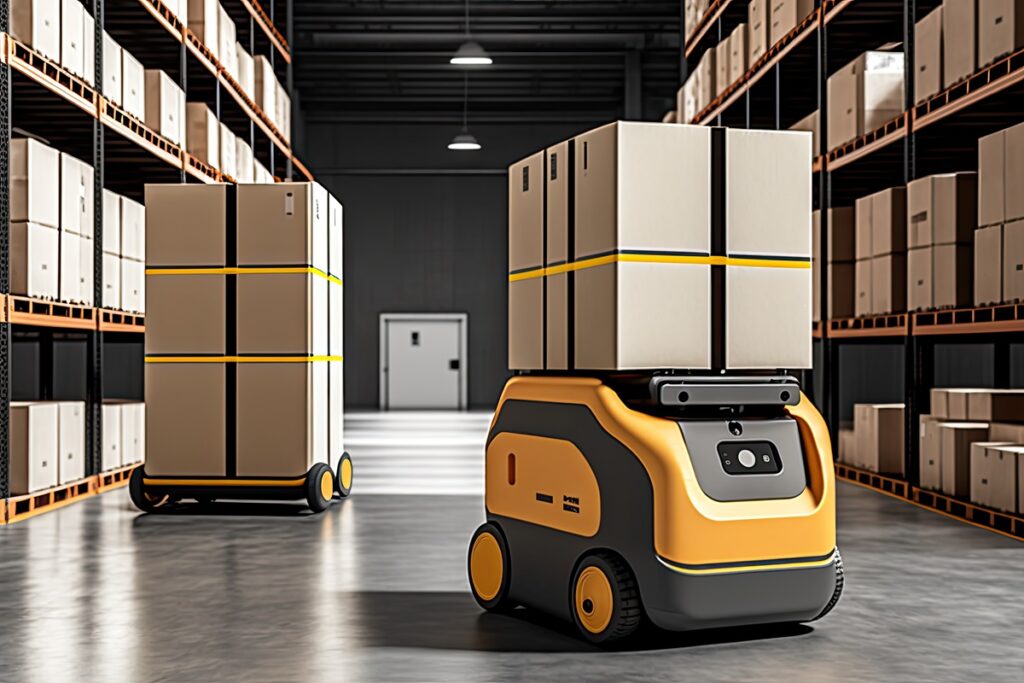In the fast-paced worlds of manufacturing, distribution, and logistics, businesses constantly strive to implement innovative solutions to enhance efficiency, improve productivity, and drive down costs.
One technological advancement becoming increasingly popular in industry is the Automated Guided Vehicle (AGV). This driverless vehicle is revolutionising material handling processes, offering several benefits, including streamlining operations and lowering expenditure.
Here are six of the most significant benefits of AGVs…
- Increased efficiency
AGVs don’t need breaks and don’t have set work hours, meaning they can operate 24/7. Moreover, they remove the element of human error, completing repetitive tasks with unerring precision, which also significantly boosts the speed of operations. Optimised route planning and automated workflows can also be introduced, cutting the time required for handling and transporting materials.
- Improved safety
Safety should be the number one concern in any business setting. AGVs have advanced sensors and navigation technologies to detect obstacles, including pedestrians and other vehicles. This, in turn, minimises the risk of workplace accidents. Additionally, AGVs can be programmed to follow strict safety protocols, further contributing to the prevention of accidents and eliminating the risk of human error.
- Flexibility and adaptability
AGVs can be used for a broad range of applications in various industries. Their high adaptability allows them to deal seamlessly with changes in production processes, layout alterations, and fluctuations in demand. Moreover, AGVs can be programmed to handle various items of different weights and dimensions – perfect for businesses dealing with diverse products. This adaptability is vital in modern manufacturing, where flexibility is key to remaining competitive.
- Lower costs
Businesses are always looking to lower costs, and AGVs present a perfect opportunity to do just that. While the initial investment is significant, long-term savings are made in wages and ongoing staff costs, plus they offer a considerable reduction in errors and damaged goods. What’s more, AGVs can be programmed to take optimal routes, reduce resource consumption, and drive down business costs.
- Optimised space utilisation
Space costs money, so businesses need to maximise their use of space to drive up profits. Traditional forklifts and conveyors take up room, lessening the space available for storage, but AGVs can operate in confined spaces and tight aisles. This is particularly important for industries located in areas with high property prices, where every inch of space is valuable.
- Advanced inventory management
AGVs have sophisticated tracking and inventory management systems, allowing them to pick orders accurately, update inventories in real-time, and efficiently move items. This leads to better inventory control, reducing the chances of understocking, overstocking, and other inventory-related issues.
AGVs have become indispensable tools for many businesses looking to stay one step ahead in today’s competitive landscape. Their ability to enhance efficiency, increase safety, and adapt to changing needs makes them a wise investment for companies looking to optimise their material handling processes. The importance of AGVs is only likely to increase, significantly influencing the future of automation and logistics.
To find out more about AGVs – as well as the batteries used to power them – please don’t hesitate to get in touch with a Johnson Matthey Battery Systems specialist today.
